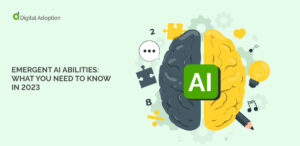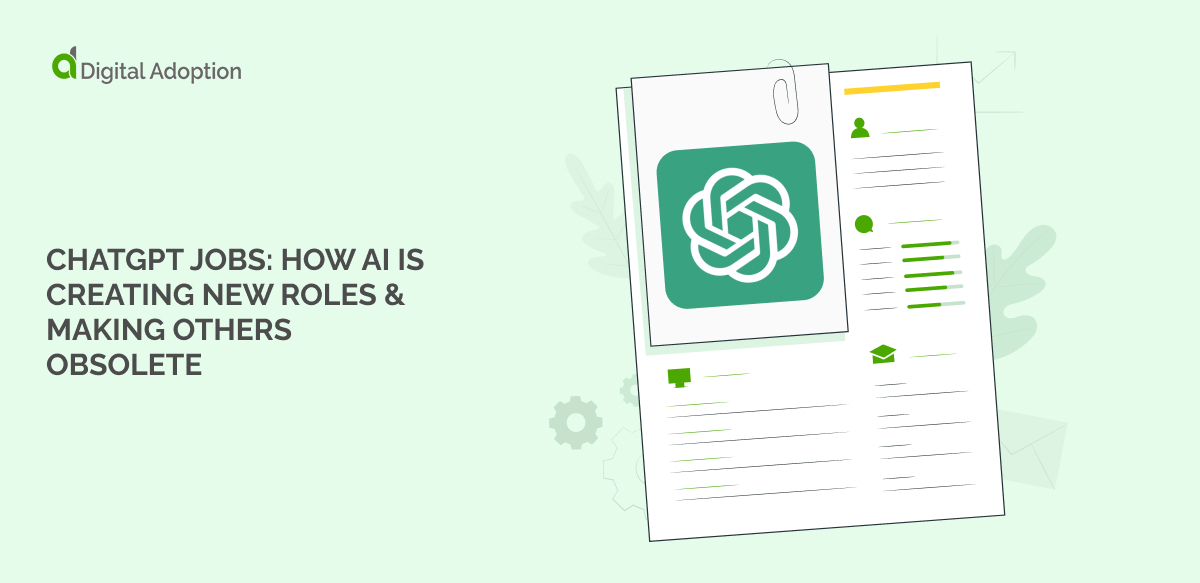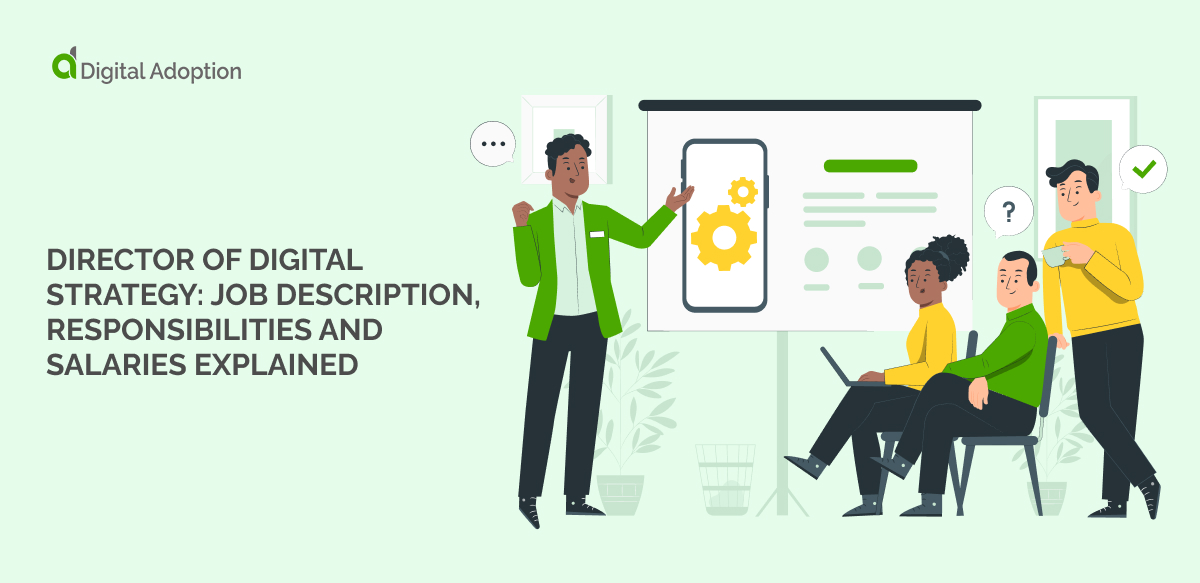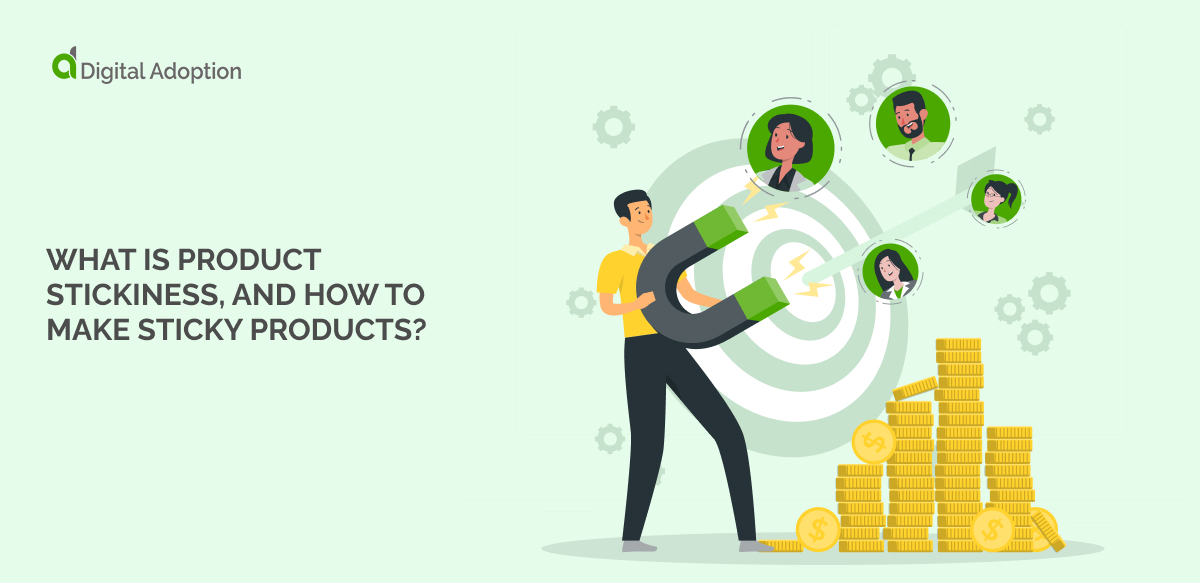Digital transformation and intelligent information are critical processes in today’s business climate.
Below, we’ll explore both of these concepts in detail, including:
- What digital transformation is
- Why businesses must transform in today’s digitally-driven economy
- What intelligent information means
- And how to leverage intelligent information management to fuel growth
To get started, we should learn about the digital economy.
The Digital Economy
The global economy is undergoing a radical, large-scale transformation.
This economy has been called the digital economy by some experts.
According to Deloitte, the digital economy is the economic activity that results from online connections, transactions, data, and processes.
The backbone of this economy is “hyperconnectivity,” which turns out new products, services, and business models.
This massive digital disruption is ushering in new paradigms in a few areas:
- The way people work. Things such as remote working, online collaboration, and mobile technology have changed the way we work together. The digital workplace offers new growth opportunities and has even created new industries, such as the so-called “gig economy.”
- Digital supply networks. Business-to-business relationships are also changing the way they manage communications, commerce, and data. In the coming years, businesses will need to transform the way they share data, in order to keep up with the growing global middle class.
- The Internet of Things (IoT). Soon, we will enter an era where a great many mechanical devices are connected online. This will further increase efficiencies, alter business models, and impact workforces.
- Customer experiences. People interact differently thanks to digital technology. These new modes of interaction have redefined the way customers research, shop, buy, and communicate with brands.
Digital transformation, of course, is not restricted to these four areas.
However, they illustrate four core areas of disruption.
They can also act as central pivot points for many organizations that are starting their digital transformation journeys.
Understanding Digital Transformation
According to a report by AIIM, The State of Intelligent Information Management, digital transformation is aimed at redefining experiences with customers, partners, and employees.
The report also suggests that digital transformation is on the rise:
- Over 53% of organizations are “living on the edge” in terms of a serious disruption to their business model
- 81% of organizations believe that digital transformation is important or very important
- 92% of organizations believe that “something needs to change” and that they must modernize their information management strategy
This last bullet point begs the question – what is a good information management strategy?
After all, today’s world is inundated with information.
In fact, there is so much information today that some have coined the term “information chaos” to describe this trend.
To cope with this overabundance, we need new frameworks, tools, and practices.
What Is Intelligent Information Management?
Intelligent Information Management (IIM) is a set of best practices – combined with technology – that help organizations build effective information ecosystems.
There are four core elements in IIM, according to Canon’s Ken Neal.
Paraphrased, they are:
- Rationalizing the information infrastructure – Businesses must first assess their needs, set out their requirements, and implement changes.
- Digitalizing core processes – Digitalization and modernization of core business processes, such as paper-based information management.
- Automating compliance – Governance and compliance activities should be automated via rules, access controls, and technology.
- Leveraging data, analytics, and artificial intelligence – Machine learning and other modern technologies can aid in information analysis, helping businesses extract and understand data.
In the aforementioned AIIM report, these four processes were described as:
- Modernizing the information toolkit
- Digitalizing core organizational processes
- Automating compliance and governance
- Leveraging analytics and machine learning
This type of framework can significantly benefit organizations that are undertaking digital transformation initiatives.
Digital Transformation and Intelligent Information Management
AIIM’s report claims that “information management maturity and digital transformation maturity are directly tied to business effectiveness and profitability.”
The four IIM practice areas, mentioned above, utilize a few technology building blocks:
- Records management and preservation
- Internal and external collaboration platforms
- Document classification
- Cloud content management
- BPM
These can help companies manage information intelligently, and successfully drive digital transformation.
The Future of Digital Transformation and Intelligent Information
So where do we go from here?
In order to successfully transform, we certainly need to train employees on new software and tools
But we also need new ways of thinking and operating.
Here are a few thoughts offered by AIIM:
- Big Content and New Tools – Today’s information explosion has resulted in big data and big content. New tools are emerging that can finally help us make sense of all of this information and use it profitably.
- Content Plus Data – Businesses should scale their perspective beyond “content management” and focus on the information contained in that content. Otherwise, you risk focusing on content-related processes, rather than the bigger picture of information management.
- Knowledge Can Be a Curse – Specialization is necessary in any discipline. However, siloed business functions don’t communicate with one another. Unless knowledge, information, and business processes are integrated under an information management umbrella, that knowledge can remain untapped.
Intelligent information management offers one useful framework that can facilitate digital transformation.
However, it is just one tool among many.
To truly succeed at digital transformation, companies should do their due diligence – research digital transformation, digital adoption, change management, and the digital economy in depth.
After all, digital transformation projects can make the difference between surviving or failing in the digital economy.













